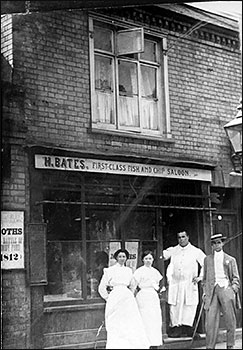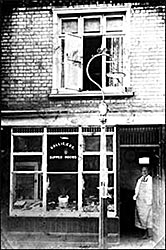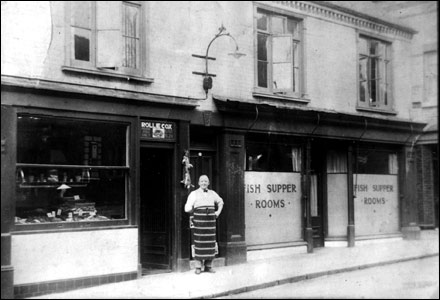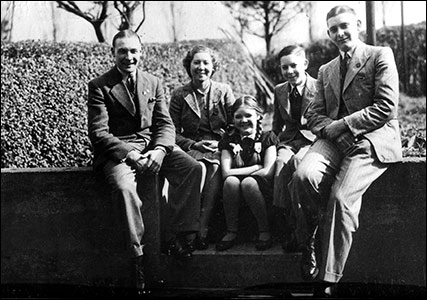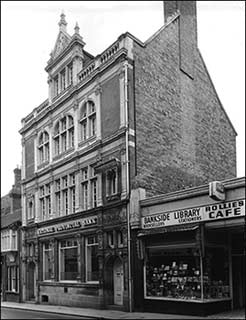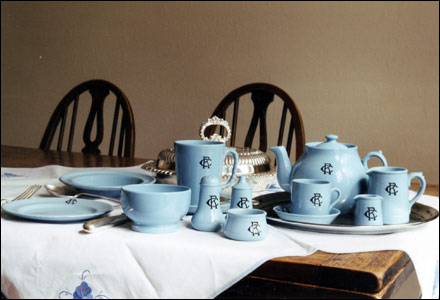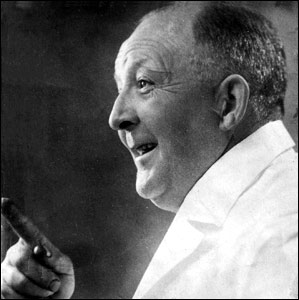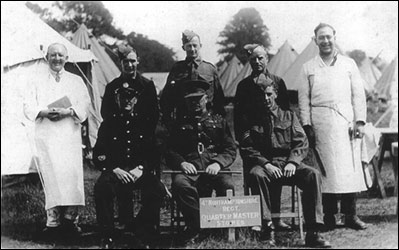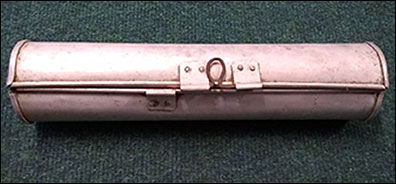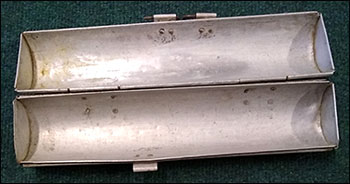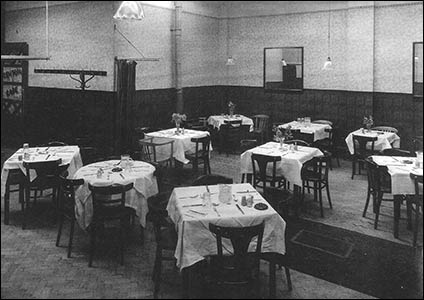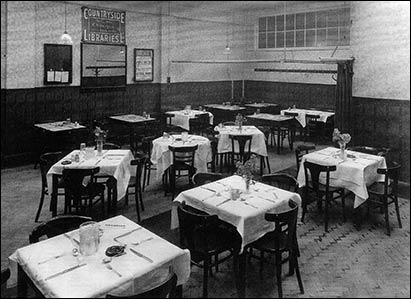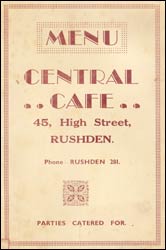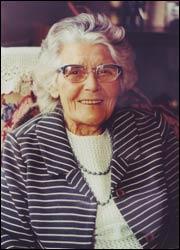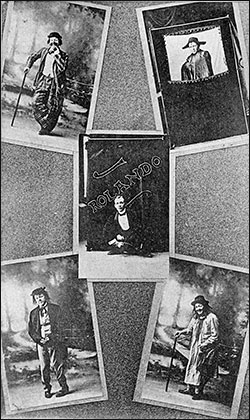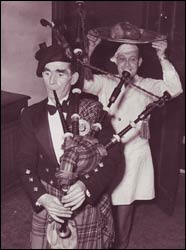|
|||||||||||||||||||||||||||||||||||||||||||||||||||||||||||||||||||||||||||||||||||||||||||||||||||||||||||||||||||||||||||||||||||||||||||||||||||||||||||||||||||||||||||||||||||||||||||||||||||||||||||||||||||||||||||||||||||||||||||||||||||||||||||||||||||||||||||||||||||||||||||||||||||||||||||||||||||||||||||||||||||||||||||||||||||||||||||||||||||||||||||||||||||
| Madeleine Sturgen (nee Cox), 2005 |
|||||||||||||||||||||||||||||||||||||||||||||||||||||||||||||||||||||||||||||||||||||||||||||||||||||||||||||||||||||||||||||||||||||||||||||||||||||||||||||||||||||||||||||||||||||||||||||||||||||||||||||||||||||||||||||||||||||||||||||||||||||||||||||||||||||||||||||||||||||||||||||||||||||||||||||||||||||||||||||||||||||||||||||||||||||||||||||||||||||||||||||||||||
|
Rollie Cox & his Cafe
|
|||||||||||||||||||||||||||||||||||||||||||||||||||||||||||||||||||||||||||||||||||||||||||||||||||||||||||||||||||||||||||||||||||||||||||||||||||||||||||||||||||||||||||||||||||||||||||||||||||||||||||||||||||||||||||||||||||||||||||||||||||||||||||||||||||||||||||||||||||||||||||||||||||||||||||||||||||||||||||||||||||||||||||||||||||||||||||||||||||||||||||||||||||
|
This is my story of Rollie's Cafe, during the war................. |
|||||||||||||||||||||||||||||||||||||||||||||||||||||||||||||||||||||||||||||||||||||||||||||||||||||||||||||||||||||||||||||||||||||||||||||||||||||||||||||||||||||||||||||||||||||||||||||||||||||||||||||||||||||||||||||||||||||||||||||||||||||||||||||||||||||||||||||||||||||||||||||||||||||||||||||||||||||||||||||||||||||||||||||||||||||||||||||||||||||||||||||||||||
|
|||||||||||||||||||||||||||||||||||||||||||||||||||||||||||||||||||||||||||||||||||||||||||||||||||||||||||||||||||||||||||||||||||||||||||||||||||||||||||||||||||||||||||||||||||||||||||||||||||||||||||||||||||||||||||||||||||||||||||||||||||||||||||||||||||||||||||||||||||||||||||||||||||||||||||||||||||||||||||||||||||||||||||||||||||||||||||||||||||||||||||||||||||
|
In the 1930's my parents kept a fish and chip shop. They sold fresh fish daily and fried fish and chips at night; there was also a supper room at the side of the shop. This was in the Rushden High Street near The Feathers Public House; and a second hand shop, which was owned by a Mr Sweeny, as you can guess he was known locally as 'Sweeny Todd'.
We all lived together above the shop, in what you would call a flat, nowadays. About the year 1934 the council decided to widen the road. Therefore the fish shop, the Feathers and Mr Sweeny's shop had to be demolished. The road was made wider and new buildings were built. Ironically the road has been narrowed again in the last few years.
My Father bought a house in Higham Road and we all went there to live, Mum, Dad, Audrey, Joe [Harold J], Dick, Brian, my Dad's Uncle Harry and me. Mum and Dad started up in business with a cafe at forty-five High Street Rushden. This must have been about 1934. It was called 'Northants Central Cafe', but it soon became known as 'Rollie Cox's'.
It was a modest little cafe which they started up from scratch. Morning coffee was served, mid-day dinners, afternoon teas or 'high tea'. All the crockery was a pretty blue with an R/C monogram on and matching white and blue table cloths. Gradually the lunch time trade began to get busy. People (mostly men) who worked the local shoe factories would come for their mid day meal on a regular basis, which was prebooked by agreement. A customer would come to see my Father and ask if he could come daily, and if he had any spare places, he would tell him at which table he might sit. These regular customers would all sit at tables on the right side of the room. It was a set menu of meat and vegetables, a sweet pudding and a cup of tea. Everything had to be served quickly, as the men only had an hour for lunch so there was no time to spare. On the left hand side of the room it was a bit more select; office workers shop workers and shop keeper, who owned the local shops in the High Street, would all sit at their table and discuss trade and what was going on in the High Street. Casual customers would also sit in that side. On this side there would be a choice of lunches and puddings and the vegetables would be served in a little silver side dish. For this special service they paid extra (perhaps about 3d). Coffee in those days was made with ground coffee. No Nescafe in the 1930's, or some people liked Camp coffee. ln the kitchen there was a big water boiler with a coffee percolator attached to it, and the 'real coffee' was served in little blue coffee cups and saucers. Horlicks and hot chocolate were on the menu also Camp coffee and tea. This brings us up to 1939, when the War Clouds gathered.
My parents bought as much as they could afford to buy, tinned fruit, tinned cream, tinned salmon, tongue and corned beef, and a big box of Vinolia soap. There weren't any credit cards then. You had to pay your way and the money had to be paid in full. War was declared in September 1939 and my brother Joe was called up into the Army straight away. The first job at the cafe, was to black out the windows, which were sunlights in the roof, there weren't any side windows. These sunlights were painted over with a thick blue paint (it was also used on bus windows). The lights which were used after dark were sort of an orange bulb which didn't shine through the blue paint at night. The cafe closed at 5-30p.m. so there wasn't too much light at night. They couldn't really cheat, and say they had sold more meals than they had, because the money taken had to tally with the meals counted. Some provisions were still supplied by Kinghams, but they also registered with the Home and Colonial grocers and with Mr Potter the butcher. Meat was very short and they just had to have whatever Mr Potter could let them have, and now and again there would be a blackboard notice in the cafe saying ‘Today is a meatless day' and that was it. Mother would try and supplement by serving two helpings of Yorkshire pudding. She would do anything to make the meals more filling, she used to make home-made sage and onion stuffing and parsley stuffing (we grew the sage and parsley in the garden). Her gravy really was something special. First of all she would have some big bones from the butcher and put them in a great big pan and roast them in the oven. Then she would take the tin out, the bones all smoking and spitting and she would pour boiling water on them and put them into a giant saucepan, add carrots and onions and simmer for hours. Oxo was very scarce; gravy browning was all that you could get. When I see Jubere on sale in the supermarket I think of her and her gravy and how she used to take such pains over it. One customer, a bachelor, used to bring a jar for her to fill with gravy for his Sunday lunch. Then there were her steak and kidney puddings, or meat and onion roll; a rare treat. That meant an early start for Mum and Dad, as they had to walk to Rushden to get to the cafe in time to get the steamers on early to cook the puddings.
My sister used to have to get me ready for school on these days. l had long plaits and she always used to pull my hair, or I thought so at the time. Sometimes sausages were on the menu, and I'm sure that Mum and Dad were the first to put batter on the sausages, and then there was Corned beef pasty another war time special. In October 1940 several bombs dropped in Rushden. That's when Alfred St School was bombed. A stone pinnacle fell off the National Provincial Bank, and went crashing through the skylight in the cafe, breaking two chairs and a table (fortunately no one was hurt). The gas mains were bombed so the gas supply was cut off. In this mayhem, Mum managed to cook some kind of meals, there was an electric cooker and a solid fuel boiler. The British did what they are best at; took everything in their stride and just carried on. At this time Dad was in Northampton Hospital with heart trouble, the pinnacle had fallen off the roof, and I was in the school which had been bombed; through all this Mum soldiered on. (At this point I will add a piece of social history. If anyone was ill in Hospital who was from Rushden or the surrounding villages, his or her name would appear on a daily bulletin in the Evening Telegraph office. The bulletin would only have a few names on it, as I suppose few people went to hospital compared to nowadays. The name of the ward, the patient, and also his or condition which would either say satisfactory or enquire). In February 1942 Dad died. Joe was in the Army, Dick was in the Fleet Air Arm and Audrey was married and living in Loughborough. Now we were reduced from a family of eight to a family of four. Mum, Brian, Uncle Harry and me. Uncle Harry was in his dotage and used to potter about the house and garden doing a few jobs. My Mother's sister, Winnie, was a great help and between them they kept things going. We had another Aunt, Mary who lived at Covington; she would ride her bike to Rushden, bringing whatever fruit was in season. Rhubarb, apples, damsons, plums, berries and little tiny plums that she called cracks. None of these were rationed so Mum could use them to make fruit tarts. We always kept some hens at home and Brian used to look after them. If you kept hens you were allowed to have an egg ration or hen food ration (mash). We had the mash. So Brian would mix the mash with any scraps from the kitchen, and we never went short of eggs. Mum even used to pickle eggs in isinglass. The rest of the scraps and vegetable peelings went into the pigbin, and Mr Ashby would collect it once or twice a week. lt was a common sight, to see a bin marked pig food on the side of the pavement for housewives to put scraps in; all to help the war effort. We would go in the fields just behind our house and go gleaning to get some corn for the hens Mum used to say the hens deserve a treat. We had to stand at the gate until the farmer gave us permission to go in the field. Lots of people went gleaning on a summer evening, all for a bag of corn. But we always enjoyed these summer evenings. Milk wasn't rationed but petrol was. Mr Abbott didn't deliver milk on Thursdays; my job, was to go to the dairy on my bike and collect 4 pints of milk and take it to the cafe so that they had enough milk for Friday mornings. Another job I had was a perk really; I used to wash up the empty jam jars and take them to the Home and Colonial, there was about a penny on each jar, and I was allowed to keep the money. Married women with families didn't go out to work. They had too much to do at home. Washing and boiling in the copper, then putting it through the mangle. There were very few labour saving devices, they didn't own a fridge, which meant that they had to shop 2 or 3 times a week. They might call in at Rollie's for a cup of tea and a piece of toast, biscuits were scarce and were only sold to people with children. Lemonade was the same. Mr Crump would call and say 'I can let you have 2 dozen Mrs Cox', and that was it. Mum had to buy what she could get. Fresh fish was the same, she could only buy what Mr Bugby could let her have.
The winters were so cold even coal was rationed, the people who worked in the shoe factories had to start work at 7-30 a.m. By lunch time, after standing in a cold factory for 4½ hours. they were ready for a good hot meal. I don't think sandwiches would have been enough in those days. 'Divi Day' was always special. Ladies would collect their 'divi' from the Co-op, and spend it in the High Street, including tea and cakes at Rollie's. On Saturday afternoons people would go down the High Street shopping, and then call in at Rollie's for High Tea, Egg & chips, Sausage or Spam & chips. Tomatoes or egg on toast, or Welsh Rarebit. And then they might go to the pictures first house. This was a regular occasion for lots of people and went on for a few years after. When people became more affluent, some then went out of town to do their shopping. My Aunt Lily used to come and help on Friday and Saturday afternoons (married women with no children had to work for so many hours a week). She was so good at slicing the bread, and the spam nice and even, sliced bread wasn't available then. The margarine was awful a bright buttercup yellow and she would mix it with a little butter and milk to make it go further. There used to be two notices on the wall advertising what was on at the cinema, in payment for this there was a concession of 9d off any ticket; we often went to the pictures; I remember seeing Gulliver's Travels on the night before the school was bombed.
Do you remember how the gas pressure would go up and down sometimes? Mum used to grumble; "There's not much gas today" she would say. One lady who helped in the kitchen used to toast the bread on a great big grill, and when she burned it, as she often did, she would say "There's a lot of 'lectric today Mrs Cox." After the lunchtime trade was over the kitchen was quieter, she and the other ladies would prepare the vegetables for the following day; cabbage, brussells, peas, carrots, everything had to be done by hand, except for the potatoes which were peeled in a great big noisy machine which looked like a cement mixer. The potatoes would hurl around the machine and come out peeled and washed. It was an ugly contraption, but if it broke down we would all have to peel the potatoes by hand, me included. On one of the quieter afternoons I would get home from school and go to Mr Warren's the butcher and get 3 pennyworth of ice. We had an ice cream bucket and we would make ice cream, and churn it and turn the handle for ages. l don't know what the recipe was, I wish I knew, it was 'Ambrosia’, food of the Gods.
We had an elderly aunt who lived in London; every now and then mum would pack up a food parcel for her. A cooked chicken, home-made cake, a few other things like butter, sugar and home-made toffee. She would pack it into a large biscuit tin and put it on a Birch's bus, carriage paid, which would be collected at London. Aunt Lou did own a car, but couldn't get the petrol to drive to Rushden, to stay for a few days. She would catch the bus to Rushden; she considered herself much too grand to carry a suitcase, so being very thin, she would wear two or three dresses on top of each other, and just carry a small bag with a change of underwear in. The American soldiers were encamped all over England, and at airfields all over East Anglia and the Midlands. There were twelve military policemen billeted at the St John Ambulance rooms in Station Road, They didn't have any cooking facilities there, they just used to sleep there. By arrangement with the U.S. Army the men would walk to the cafe every day for breakfast, midday meals and evening meals. They cooked snacks for themselves in a cook house in Coffee Tavern Lane. Mum was provided with the food, she just had to cook it. We thought it was so funny, they used to eat jam with egg and bacon. We all had Xmas dinner together at the cafe, 12 soldiers, Aunt Win and family, and our family. It was a familiar sight to see two American Military policemen walking down the High Street together, keeping an eye on the American Airmen.
Sadly Dad died in 1942, they had such plans, they started from scratch and were self taught. Everything was good old fashioned home-made food. Somehow Mother managed to carry on with a lot of help from Aunt Win and other members of the family. The war started when I was nine years old, I have written this down in 2005; this is the war as I remember it. |
|||||||||||||||||||||||||||||||||||||||||||||||||||||||||||||||||||||||||||||||||||||||||||||||||||||||||||||||||||||||||||||||||||||||||||||||||||||||||||||||||||||||||||||||||||||||||||||||||||||||||||||||||||||||||||||||||||||||||||||||||||||||||||||||||||||||||||||||||||||||||||||||||||||||||||||||||||||||||||||||||||||||||||||||||||||||||||||||||||||||||||||||||||
Notes: Rollie was born at Higham Ferrers, son of Charles & Henrietta, and his parents were Stewards of the Athletic Club there. Rollie was aged 22 and already working as a Commedian in 1911 when the census was taken. Rollie Cox took over the Fish Shop of Herbert Bates in about 1927 In 1956 they traded as Cox's caterers. |
|||||||||||||||||||||||||||||||||||||||||||||||||||||||||||||||||||||||||||||||||||||||||||||||||||||||||||||||||||||||||||||||||||||||||||||||||||||||||||||||||||||||||||||||||||||||||||||||||||||||||||||||||||||||||||||||||||||||||||||||||||||||||||||||||||||||||||||||||||||||||||||||||||||||||||||||||||||||||||||||||||||||||||||||||||||||||||||||||||||||||||||||||||
